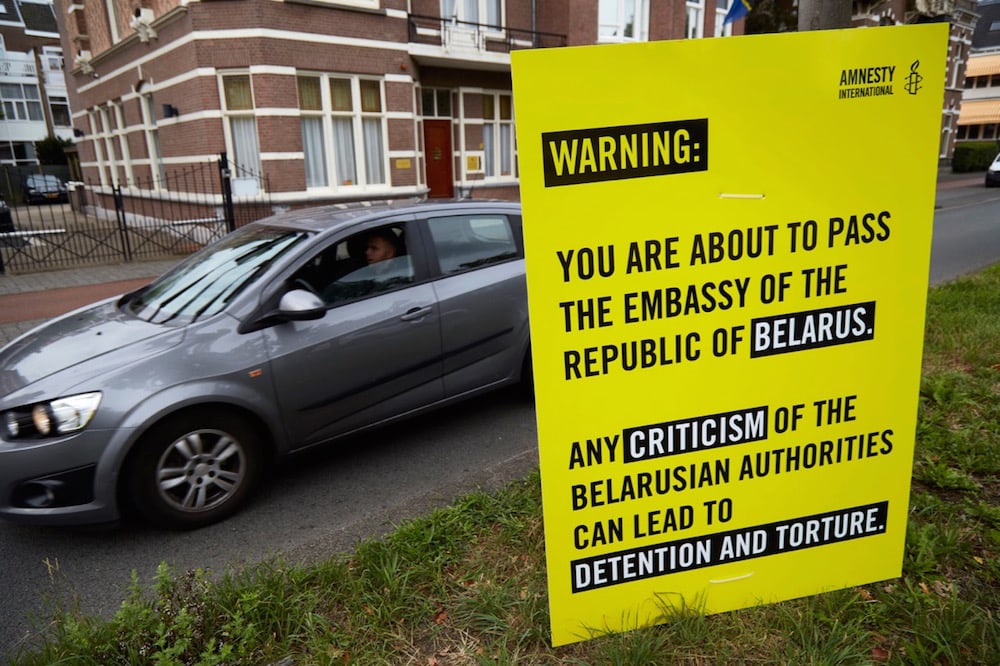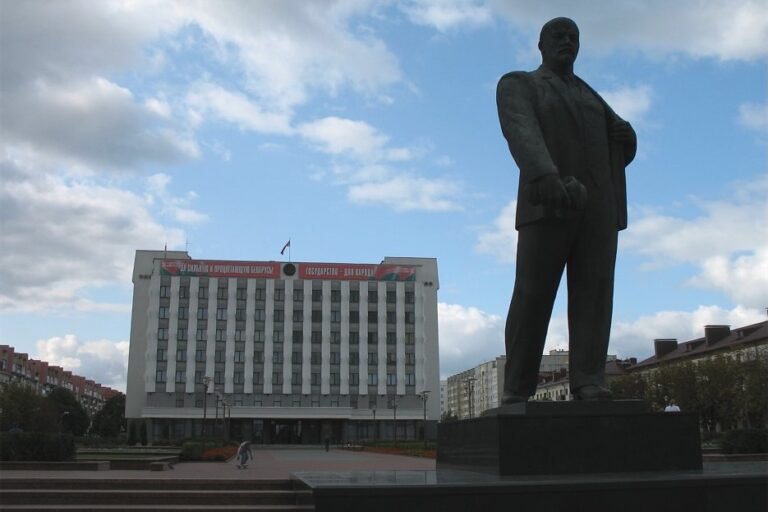The reported German inquiry does not stem from the recent forced rerouting of Raman Pratasevich's flight but is likely the result of a criminal complaint filed in May on behalf of individuals alleging torture at the hands of Belarussian law enforcement.
This statement was originally published on hrw.org on 1 June 2021.
News comes in wake of forced downing of plane, activists’ arrest
With global condemnation still raging over the brazen forced downing of an airplane to detain journalist and activist Raman Pratasevich, it’s welcome news that German prosecutors may be looking to open a preliminary inquiry into other alleged serious abuses by the Belarus regime.
For Belarusians facing little prospect for accountability at home, this step may provide a limited path to justice.
Pratasevich, and his girlfriend, Sofya Sapega, remain in detention, their lives in jeopardy, and there is evidence to suspect torture and other ill-treatment. They should be released immediately and the international community should pursue criminal investigations into their arbitrary detention, alongside other measures to protect Belarus’s civil society in the face of escalating repression.
The reported German inquiry does not stem from this incident but is likely the result of a criminal complaint filed in May on behalf of individuals alleging torture at the hands of Belarussian law enforcement.
Belarussian authorities carried out a widespread, brutal crackdown on peaceful protesters and their supporters after the disputed August 9, 2020 presidential election. They have arrested tens of thousands of people, tortured hundreds, raided dozens of human rights groups and media outlets, and detained numerous activists and journalists on bogus mass rioting, tax, and other charges. All this with impunity.
The reported German inquiry is the latest sign of the growing invocation of the legal principle of universal jurisdiction, which allows for the investigation and prosecution of serious crimes regardless of where they were committed.
Germany stands out for its ability to progress criminal investigations beyond the preliminary inquiry phase, even if suspects are not present in the country. Indeed, German prosecutors have pursued an increasing number of universal jurisdiction cases, particularly in relation to Syria in recent years.
Judicial authorities in other European countries should take similar steps to pursue preliminary inquiries into alleged serious crimes. An innovative “International Accountability Platform,” set up by a coalition of human rights NGOs and backed by 37 countries and the European Union, is now receiving evidence of alleged human rights crimes in Belarus for future prosecutions. By acting now, authorities across Europe can make use of this platform to pave the way for future accountability and send a strong message to would-be perpetrators that the days of committing gross abuses with impunity are numbered.



